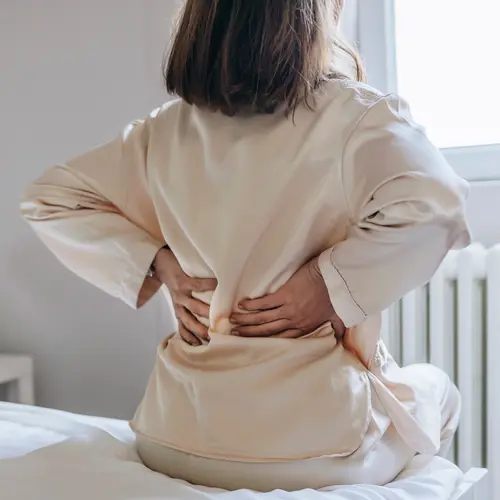Whatever your age, the effects of smoking on bone health can't be ignored.
The years from childhood until age 30 are prime time for building bone mass. "If an adolescent is smoking, they will not develop maximum bone mass. They will end up with a smaller skeleton and less bone mass, compared to a nonsmoker," says Primal Kaur, MD, an osteoporosis specialist at Temple University Health System in Philadelphia.
Smoking continues to affect bone health in your 40s and 50s. Women that age begin to lose estrogen, which is very important for bones. If you smoke, bone loss is more rapid -- and with more complications, Kaur tells WebMD.
Why Is Smoking So Damaging to Bone Health?
"Nicotine and toxins in cigarettes affect bone health from many angles," Kaur says.
Cigarette smoke generates huge amounts of free radicals -- molecules that attack and overwhelm the body's natural defenses. The result is a chain-reaction of damage throughout the body -- including cells, organs, and hormones involved in keeping bones healthy.
The toxins upset the balance of hormones (like estrogen) that bones need to stay strong. Your liver produces more estrogen-destroying enzymes, which also leads to bone loss, says Kaur. "Smoking makes bone loss even worse in the menopausal years. It adds to the bone loss that's already occurring."
Smoking triggers other bone-damaging changes, such as increased levels of the hormone cortisol, which leads to bone breakdown, says Kaur. "Research also suggests that smoking impedes the hormone calcitonin, which helps build bones -- so that hormone can't do its job."
There's more: "Nicotine and free radicals kill the osteoblasts -- the bone-making cells," she explains. "Smoking also damages blood vessels, so there is poor blood supply of oxygen. People who smoke have repeated fractures. Studies show that when a smoker suffers a fracture, they don't heal very well because of poor blood supply."
Because smoking damages blood vessels, it also damages nerves in toes and feet, which can lead to more falls and fractures. "Smokers have double the risk of having a fracture. Heavy smokers increase the risk of fracture even more," Kaur says.
If You Quit Smoking, Is It Possible to Improve Bone Health?
"Bone building is a slow process, and it takes a long time to fix the damage, so some of the damage may be irreversible," Kaur says. "The heavier the smoker, the longer it will take to recover."
But there is hope. She points to one recent study, published in 2006 in the Journal of Women's Health: After one year without smoking, a group of postmenopausal women had improved bone density, compared with women who continued smoking.
How do you get started if you want to quit smoking?
"I've known people with diehard habits who have quit," says Murray Dabby, LCSW, director of the Atlanta Center for Social Therapy. He's a former smoker who has guided many to nicotine freedom.
"You learn to cut back, phase it out," Dabby tells WebMD. "You find you don't need it as much as you think you do."
The experts advise: Set a quit date and stick to it. Get support. Get and use medication. Be prepared for relapse.
Also important: Decide what you will be doing instead of smoking. It's a critical part of quitting.
Smoking is a habit -- and a statement about your lifestyle, says Dabby, a therapist who has helped many work through addictions.
"Our habits aren't small things," he tells WebMD. "They are part and parcel of how we tend to live our whole lives. If you want to quit smoking, it's a very large decision. It's not just about giving up cigarettes. It's about choosing to live our lives differently. It's about choosing healthy living."
As you prepare to quit smoking, think about your relationship to cigarettes, he advises. Think about the ordinary times you pick up a cigarette -- after a meal, at a break, after sex, first thing in the morning, when you get into your car.
Then, switch things around, Dabby tells WebMD. "Don't smoke at times you ordinarily might. Change up the times. Instead of smoking after a meal, wait 10 or 15 minutes. When you're in the middle of an anxious moment, let that moment be -- wait until you're relaxed before you smoke. Don't light up first thing in the morning; wait an hour."
With this step, you ease out of habits -- yet you're not depriving yourself immediately, says Dabby. "You're learning what the impact is on you. Do you really need a smoke first thing in the morning? You find you don't need a cigarette after a meal -- and if you don't smoke, you can actually taste your dessert."

